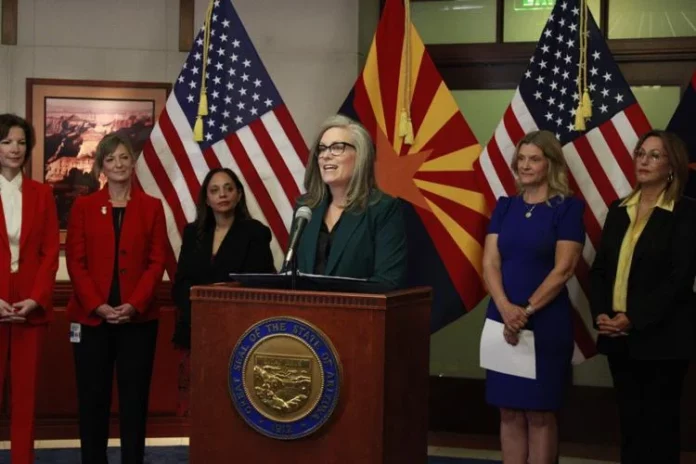
As the semiconductor industry expands in Arizona, the state continues to work toward developing enough in-state talent.
Gov. Katie Hobbs announced that the state would be investing $4 million into registered semiconductor apprenticeships, which includes a partnership with NXP Semiconductors.
“Today’s announcement will ensure Arizona fully realizes its potential to be the hub of America’s semiconductor industry,” Hobbs said, according to a Nov. 16 news release. “The advanced manufacturing industry brings with it good paying jobs, and we are going to make sure every Arizonan has the opportunity to reap the benefits of our economic growth. Apprenticeship programs are one of the best ways to connect people to the possibilities, and I am proud to bring government, industry, and education leaders together to build an Arizona for everyone.”
Maricopa Community College is also developing a “workforce accelerator” program dubbed Future48 to teach students the skills necessary to work in the semiconductor industry, which is growing in Arizona.
“These programs will provide a turbo boost to Arizona’s already robust semiconductor talent pipeline, creating more opportunities for Arizonans to receive hands-on training in this high-wage field,” Arizona Commerce Authority President and CEO Sandra Watson said, according to the news release.
The Arizona Commerce Authority created a semiconductor task force in August 2022 after President Joe Biden signed off on the CHIPS and Science Act. The state government has taken similar steps when it comes to Taiwan Semiconductor Manufacturing Company, or TSMC, in north Phoenix.
TSMC’s plant opening has been pushed back to 2025 because there are not enough workers qualified to work there in Arizona, so Hobbs announced a workplace safety deal with the company, as well as a $500,000 down payment on an apprenticeship program in August, The Center Square reported.
Semiconductors are largely produced in Taiwan and are important to many electronic devices. The island is responsible for making 60% of semiconductors globally, according to The Economist. However, as tensions rise between China and Taiwan, as well as the United States, the governmental push with the CHIPS Act and public-private partnerships explains the urgency.
Proponents of actions like the CHIPS Act argue that it would ensure that the U.S. is not negatively impacted by any potential military conflict that could cut off Americans from the chip supply.
“The Registered Apprenticeship Program at the Department of Economic Security is ready to help to work in partnership with employers and training providers,” Department of Economic Security CEO Angie Rogers said in the news release. “We’ve grown from seven supported industries to fifteen, and we’re thrilled with the announcement to add the semiconductor industry to this list. We’re here to help make the magic happen by connecting an eager workforce with employment and training opportunities to be successful.”
Republished with the permission of The Center Square.













